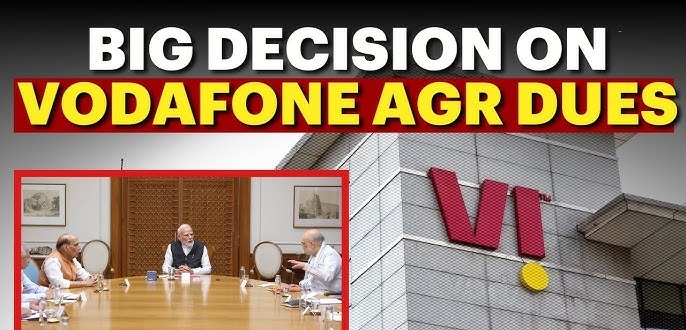Sanjay Kishan Kaul, J.@mdashThis is a reference made at the behest of the Assessee. The reference pertains to assessment year 1984-85. By an order dated 02.07.2009 passed by the Income Tax Appellate Tribunal (hereinafter referred to as ''the Tribunal''), we have been asked to adjudicate upon the following question of law:
Whether on the facts and in the circumstances of the case, the Hon''ble Income Tax Appellate Tribunal was right in law in setting aside the order of the learned Commissioner of Income Tax (Appeals) and confirming the disallowance of Rs. 2,15,453/- u/s 43B of the Income Tax Act, 1961 when the payment was made within the time prescribed by the Himachal Pradesh Sales Tax Act.
2. The reference arises in the background on the following short facts: The Assessing Officer by order dated 01.03.1988 had disallowed the sales tax paid by the Assessee amounting to Rs. 2,15,453/- after the end of the previous year but before the due date (i.e., 30.04.1984) stipulated under the Himachal Pradesh Sales Tax Act, 1968 (in short, Sales Tax Act). The said disallowance was made by the Assessing Officer by invoking the provisions of Section 43B of the Income Tax Act, 1961 (in short ''I.T. Act'').
2.1 The Assessee being aggrieved carried the matter in appeal to the Commissioner of Income Tax (Appeals) [in short ''CIT(A)'']. The CIT(A) reversed the decision of the Assessing Officer vide order dated 01.03.1988.
2.2 The revenue carried the matter in appeal to the Tribunal. The Tribunal following the decision of the Division Bench of this Court in the case of
3. Being aggrieved the captioned reference has been preferred by the Assessee. It may be noted that there is no representation on behalf of the Assessee. The revenue has been represented by Mr Sanjeev Sabharwal. Before we proceed further it may be useful to extract the relevant provisions of Section 43B as they stood in the assessment year in issue.
Section 43B: Notwithstanding anything contained in any other provisions of this Act, a deduction otherwise allowable under this Act in respect of:
(a) in the sum payable by way of tax or duty under any law for the time being in force; or
(b) any sum payable by the Assessee as employer by way of contribution to any provident fund or superannuation fund or gratuity fund or any other fund for the welfare of the employees.
Explanation: For the removal of doubts, it is hereby declared that where a deduction in respect of any sum referred to in Clause (a) or Clause (b) of this section is allowed in computing the income referred to in Section 28 of the previous year (being a previous year relevant to the assessment year commencing on the 1st day of April, 1983, or any earlier assessment year) in which the liability to pay such sum was incurred by the Assessee, the Assessee shall not be entitled to any deduction under this section in respect of such sum in computing the income of the previous year in which the sum is actually paid by him.
4. It is pertinent to note that by virtue of Finance Act, 1987 the following proviso was added w.e.f. 01.04.1988:
provided that nothing contained in this section shall apply in relation to any sum which is actually paid by the Assessee on or before the due date applicable in his case for furnishing the return of income under Sub-section (1) of Section 139 in respect of the previous year in which the liability to pay such sum was incurred as aforesaid and the evidence of such payment is furnished by the Assessee along with such return.
4.1 This proviso became subject matter of the decision of the Supreme Court in the case of
5. On reading the order of the CIT(A) it emerges that the Assessee collected sales tax and credited the same to the account titled as "sales tax payable account". As per the provisions of the Sales Tax Act the Appellant could pay the sales tax collected to the concerned authorities within one month of the close of each quarter. Consequently, sales tax collected for the quarter January - March 1984, was payable by 30.04.1984. The sales tax amount was paid by the Assessee on 27.04.1984. The argument of the Assessee was that the expression ''sum payable'' (by way of tax) would be attracted to only that situation where both the liability accrued and became due for payment in the accounting year of the Assessee. In other words where the liability became due for payment on a date beyond the accounting year of the Assessee, the provisions of Section 43B of the I.T. Act would not apply. This view, however, did not find favour with the Tribunal in view of the judgments of this Court in Escorts Ltd. (supra) and that of the Patna High Court in Jamshedpur Motor (supra).
6. We may also note that in the case of Allied Motors (supra) the judgment of the Delhi High Court in the case of Escorts Ltd. (supra) and that of the Patna High Court in Jamshedpur Motor (supra) were expressly noted and overruled. Therefore, the Tribunal''s judgment would have to be set aside. It is ordered accordingly. The question of law is answered in favour of the Assessee.
7. This, however, will not resolve the matter in issue for the reason, as noted hereinabove, that the judgment of the Supreme court dealt with the issue as to whether the amendment brought about by virtue of the Finance Act, 1987 ought to be given retrospective effect. However, on perusal of the record, it emerges that the Assessee had filed his return on 27.07.1984 (see A.O. Order). Undoubtedly, as per the facts found by the authorities below, the sales tax liability had been paid on 27.04.1984. These facts were not noticed by the Tribunal as the judgment of the Supreme Court passed in Allied Motors (supra) had not been rendered at that point in time. Therefore, for the limited purpose for passing appropriate orders in the case the matter is remanded to the Tribunal. The matter shall be placed before the Tribunal. The Tribunal shall hear and pass appropriate orders in the matter, keeping in mind the judgment of the Supreme Court in the case of Allied Motors (supra).

